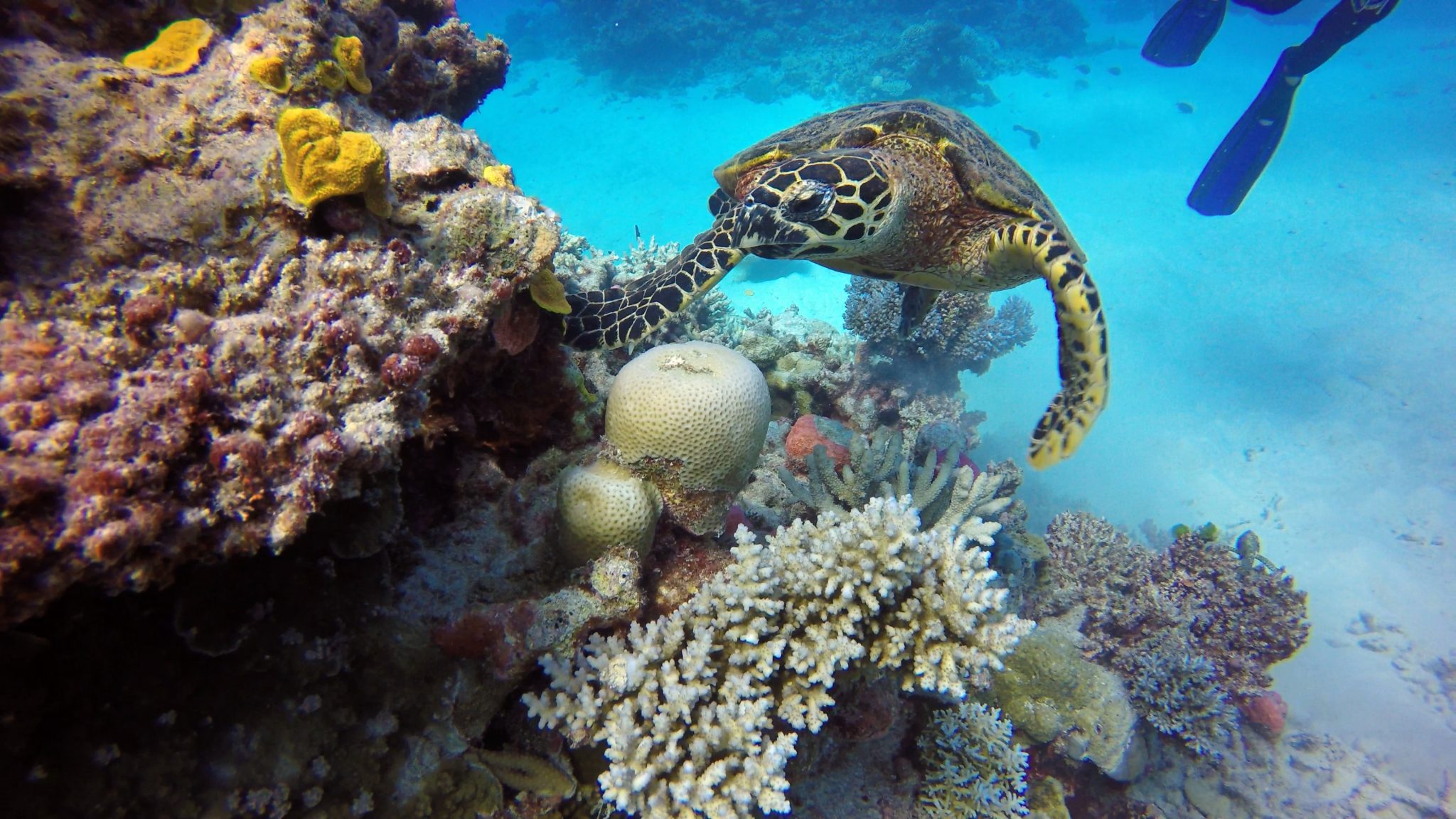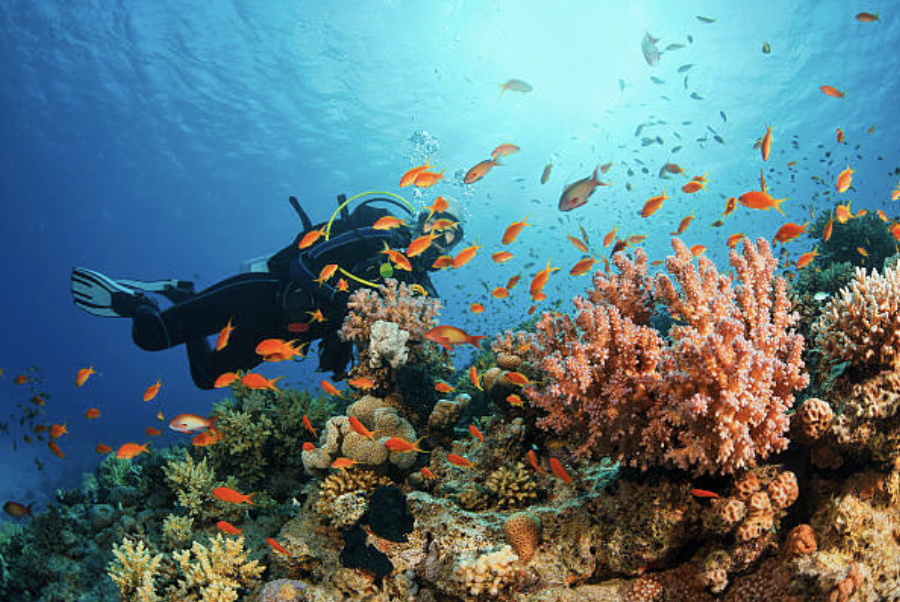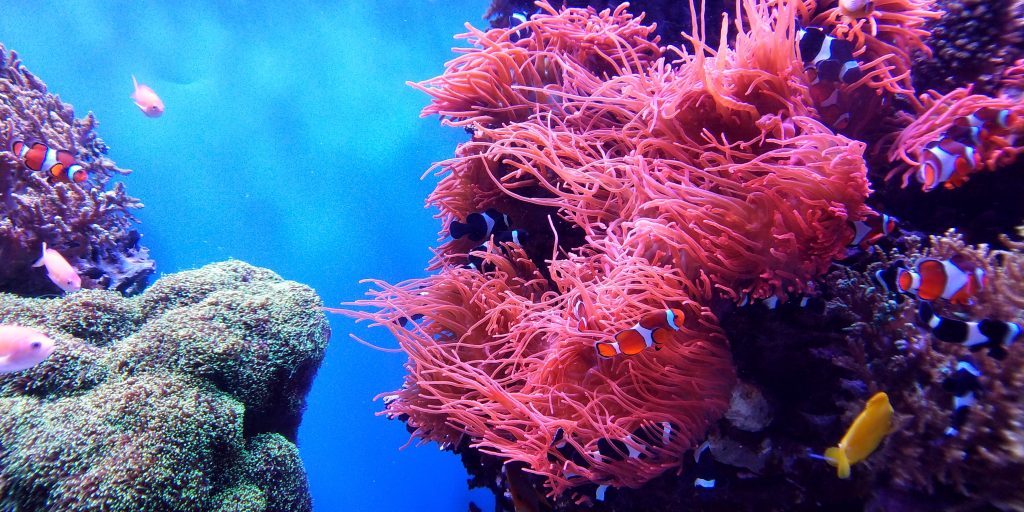We could actually save the Great Barrier Reef

Last month, the construction of a new coal mine in Australia was blocked in order to save coral reefs and protect the great barrier. While it may seem like a no-brainer, it is a significant victory for environmental laws, as it is the first time that these laws have been used to block coal exploitation in the country.
What threatens the coral reefs today
Whether we’d like to believe it or not, the biggest threat to the the great barrier reef and corals all around the world, is not tourism, is not over-fishing and is not over-exploitation of the areas. The main culprit, you might have guessed, is global warming and water acidity. Long story short, the water has become too hot for corals to thrive in their natural habitat.
Ocean reefs protect shorelines and their communities from the ever-changing sea. Strong waves, storms and even sea hurricanes can be buffered through contact. They ensure the safety of many coastal communities, as well as their livelihoods, that depend on the activities related to the reef’s preservation and biodiversity, such as tourism.

Groundbreaking and traditional tech to the rescue
In order to save coral reefs, many methods have been developed over the years. If used in coordination and if costs can be reduced (which experts like Sophie George, from the Capricorn Conservation Council, guarantee we can), these methods could easily help preserve, protect and, in a few years, repopulate coral reefs. Some of these include:
Cross-breeding: cross-breeding corals artificially in order to make them stronger and more resistant to warmer temperatures would allow to save more than a hundred species of coral.
Cryogenically frozen coral: Instead of cross-breeding, we could also freeze coral at an early stage, preserving them until it is time to reintroduce them.
Replanting with robots: In order to repopulate efficiently, robots could take charge. A smaller budget would then allow a much bigger regrowth, being less labour extensive. Robots could take charge of growing and grafting new coral onto existing reefs, so that they may finally merge as a single colony and live under the sea.
Coral seeding: Coral growth can take up to 10 years. Accelerating coral growth at the Australian National Sea Simulator and protecting growing coral from outside damage, allows scientists to aid in coral regrowth, speeding it up by at least half.

Egg cryogeny is the most recent development on that front. Scientists have finally been able to successfully preserve. This means that, when the oceans become habitable for these species again, they will be easily reintroduced into their habitat. It has bought a significant amount of time for policy-makers to address the problem and comply to the 2030 Climate Target Plan and the European Green Deal.
Endanger the reef, endanger lives?
According to the Great Marine Reef Park authority, 90% of the reefs surveyed have been touched by bleaching. However, the Great Barrier Reef is not actually considered endangered.
While UNESCO, the United Nations Educational, Scientific and Cultural Organization, continues to push for the gigantic living organism to be added onto the protectorate’s list, communities are sceptical about the impact it would have on their everyday lives.
A lot of coastal communities rely heavily on tourism and regulating it further could translate into shutting down activities essential to their livelihoods — as well as abandoning active projects for aquatic flora restoration. On the other hand, making the list could mean other sorts of funding and advantages for the region, such as further legal protection from exploitation.
As indicated by the Reef Restoration Foundation, reducing greenhouse gas emissions is the only way to successfully address climate change as a whole and save coral reefs for good.
Explore more objective but positive Earth stories in our dedicated section.
In-Depth ressources
- 2030 Climate Target Plan, European Environment Agency & European Commission
- Saving the Great Barrier Reef: these recent research breakthroughs give us renewed hope for its survival, The conversation, March 23rd 2022
- Scientists pioneer ‘game-changing’ freezing technique that could save the Great Barrier Reef’s coral, Charlotte Elton for EuroNews.Green, December 19th 2022
- How science is helping the Great Barrier Reef recover despite calls to list it as ‘in danger’, Ben Stivala for A Current Affair, February 2023
- Coal Mine Blocked to Save Great Barrier Reef, Adrian Stacey for SCUBA DIVER Mag, February 9th 2023
- Can the GREAT BARRIER REEF recover from the last 30 years of destruction?, Kevin Perry for TV Blackbox, February 27th 2023


